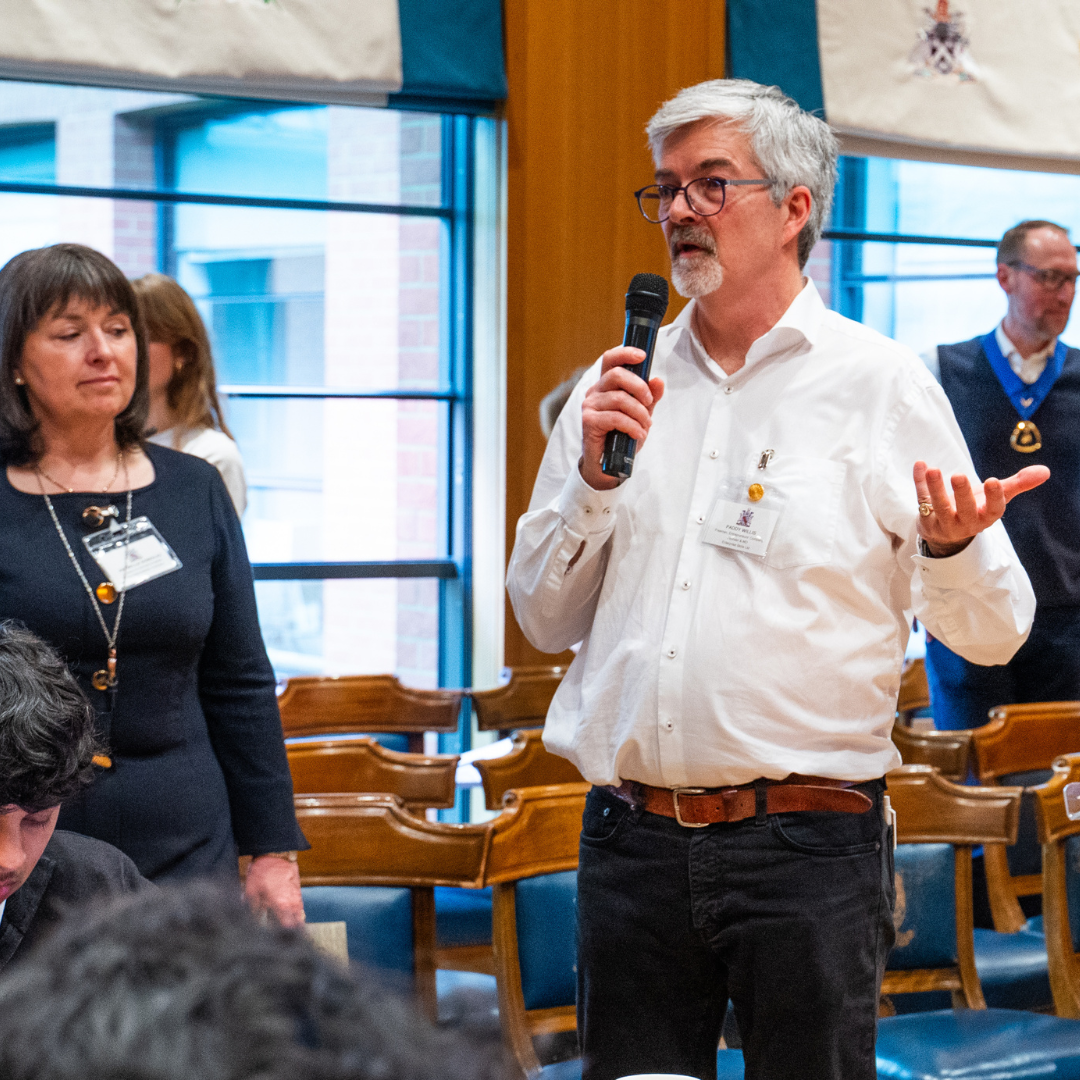£2,600 Per Year For Tutoring? There’s A Better Way
Skills Hub students consistently outperform private tutoring students. At 1/20th the cost.
Are you spending £50+ per hour on business studies tutoring? Driving across town twice a week? Watching your child sit through explanations that don’t stick?
You’re not getting value for money. And you’re definitely not alone.
The UK tutoring market is a multi-billion pound industry, with parents spending an average of £39.56 per hour on private tuition [1]. The market has exploded in recent years, growing from £498.5 million in 2023 to an expected £1.12 billion by 2030, representing a staggering 16.8% compound annual growth rate. While the desire to help your child succeed is understandable, the reality is that traditional tutoring often fails to deliver the results you expect, especially in a subject like business studies.
This exponential growth in tutoring spending reflects parents’ desperation to give their children an educational edge. However, it also highlights a fundamental problem with our education system: if traditional teaching methods were effective, why would so many families feel compelled to seek expensive supplementary support?
This article will explore the limitations of traditional tutoring, the science behind why active, simulation-based learning is more effective, and how Skills Hub offers a more affordable and impactful alternative for your child’s education.
The Tutoring Trap Most Parents Fall Into
The Promise: “Expert tutor will transform your child’s grades”
The Reality: One-size-fits-all explanations, rushed sessions, limited availability
The Cost: £2,600+ per year for mediocre results
Here’s what tutoring companies don’t tell you: explaining concepts doesn’t create understanding. Your child might nod along when the tutor explains “economies of scale,” but put them in an exam and they’ll still struggle to apply it to a real business scenario.
The tutoring industry has become increasingly commercialized, with many companies prioritizing profit over educational outcomes. Large tutoring chains often employ recent graduates with minimal teaching experience, charging premium rates for what amounts to expensive homework supervision. Even qualified teachers working as private tutors are constrained by the fundamental limitations of one-to-one explanation-based learning.
Research on the effectiveness of private tutoring has shown mixed results. A comprehensive 2020 meta-analysis found only weak evidence that private tutoring is effective, and that it may only be beneficial under certain conditions [2]. Another study concluded that private tutoring cannot be recommended as a generally effective strategy to improve academic achievement in school [3]. These findings are particularly concerning given the enormous financial investment families make in private tuition.
The Hidden Costs of Tutoring
Beyond the obvious hourly fees, tutoring comes with numerous hidden costs that families often overlook:
Time Investment: Parents spend hours each week coordinating schedules, driving to sessions, and managing multiple tutors for different subjects. This time could be better spent on family activities or supporting learning in more effective ways.
Opportunity Cost: The money spent on tutoring could be invested in university savings, family experiences, or other educational resources that provide longer-term benefits.
Dependency Creation: Students often become reliant on tutors for motivation and explanation, failing to develop independent learning skills crucial for university and career success.
Stress and Pressure: The financial burden of tutoring can create family stress, while students may feel additional pressure to justify the investment through improved grades.
Why Traditional Tutoring Fails Business Studies
Business studies is fundamentally different from subjects like mathematics or languages. It’s not about memorizing formulas or vocabulary; it’s about understanding how businesses operate in the real world. Traditional tutoring approaches are particularly ill-suited to this practical subject.
Problem 1: Abstract Explanations
Tutors explain business concepts using more business jargon. Market penetration increases market share through competitive pricing strategies.”
Your child thinks: “What does that actually mean?”
This passive learning approach, where students are simply listening to explanations, has been shown to be less effective than active learning methods. Decades of educational research have confirmed that passive learning isn’t as effective as active learning [4]. When students passively receive information, they engage only their auditory processing, missing the visual, kinesthetic, and emotional elements that make learning memorable and transferable.
Problem 2: No Real Context
Tutors use made-up examples. “Imagine a company called ABC Ltd wants to expand internationally.”
Your child thinks: “But how does this relate to businesses I actually know?”
This lack of real-world context makes it difficult for students to transfer their knowledge to new situations. Business studies is a practical subject, and learning it in a purely theoretical way is like trying to learn to swim by reading a book. Students need to see how concepts apply to real companies they recognize and understand.
The most effective business education connects abstract concepts to concrete examples. When students learn about cash flow through the lens of a startup they’ve heard of, or understand marketing strategies by analyzing campaigns from brands they use daily, the learning becomes relevant and memorable.
Problem 3: Passive Learning
Your child sits and listens. Takes notes. Nods politely. But they’re not actually doing business.
Result: Surface-level understanding that crumbles under exam pressure.
Active learning, on the other hand, requires students to think, discuss, challenge, and analyze information. This leads to a deeper understanding and better retention of knowledge. A 2021 study showed that active learning techniques encourage students to produce thoughts and get feedback through interactive settings rather than passively receiving information [5].
The cognitive science behind this is clear: when students actively engage with material, they create multiple neural pathways to the same information. This redundancy makes recall easier and more reliable, especially under the stress of exam conditions.
The Skills Hub Difference: Learning By Doing
Instead of explaining business, we let students experience it.
Traditional Tutoring Approach: “Let me explain why businesses need cash flow forecasts…”
Skills Hub Approach: “You’re running a growing bakery. Sales are increasing but you’re running out of money. What’s happening and how do you fix it?”
The difference? Your child discovers why cash flow matters by experiencing the problem firsthand.
This is the power of simulation-based learning. Research has shown that business simulations engage learners not just intellectually, but emotionally and behaviorally. They mirror the kinds of decisions students will eventually face in their careers, making the learning more memorable and transferable [6].
The Science of Experiential Learning
Experiential learning theory, developed by educational theorist David Kolb, demonstrates that people learn best through a cycle of concrete experience, reflective observation, abstract conceptualization, and active experimentation. Traditional tutoring typically focuses only on abstract conceptualization, missing three-quarters of the learning cycle.
Skills Hub’s simulation-based approach engages all four stages:
1.Concrete Experience: Students run virtual businesses and make real decisions
2.Reflective Observation: They see the immediate consequences of their choices
3.Abstract Conceptualization: They understand the underlying business principles
4.Active Experimentation: They try different strategies and approaches
This complete learning cycle creates deeper understanding and better retention than traditional explanation-based methods.
Head-to-Head Comparison: Tutoring vs Skills Hub
| Feature | Private Tutoring | Skills Hub |
| Cost | £39.56/hour (average) | £10/month |
| Annual Cost | £2,600+ | £100 |
| Access | Limited sessions | 24/7 access |
| Learning Method | Passive (listening) | Active (doing) |
| Effectiveness | Weak evidence of effectiveness [2] | Proven to improve grades |
| Engagement | Low | High |
| Curriculum Coverage | Tutor-dependent | 115+ lessons covering full syllabus |
| Progress Tracking | Subjective assessment | Detailed analytics and reporting |
| Exam Preparation | Limited past paper practice | Comprehensive exam board alignment |
Start Your Free Trial Now – Transform Your Child’s Business Studies Success Today
Why Skills Hub Works Better Than Tutoring
1. Active Learning Beats Passive Listening
Students don’t just hear about business – they run businesses. Make decisions. See consequences. Build genuine understanding through experience. This active learning approach is backed by extensive educational research showing its superiority over passive methods. Active learning requires students to engage with the material, leading to deeper processing and better long-term retention.
The neuroscience behind this is fascinating: when students actively engage with material, their brains release dopamine, a neurotransmitter associated with pleasure and motivation. This creates positive associations with learning, making students more likely to engage voluntarily and remember what they’ve learned.
2. Unlimited Practice Opportunities
Unlike tutoring sessions that end after an hour, students can practice scenarios repeatedly until concepts become automatic. This is crucial for mastery. The ability to repeat simulations allows students to experiment with different strategies and learn from their mistakes in a low-stakes environment.
Malcolm Gladwell’s “10,000-hour rule” suggests that mastery requires extensive practice. While students don’t need 10,000 hours to master GCSE business studies, they do need more practice than a weekly tutoring session provides. Skills Hub offers unlimited practice opportunities, allowing students to achieve mastery at their own pace.
3. Immediate Feedback
No waiting until next week’s session to find out if they understood. Instant feedback helps students learn from mistakes immediately. This is a key principle of effective learning, as it allows students to correct misconceptions and reinforce correct understanding in real-time.
Educational research shows that feedback is most effective when it’s immediate, specific, and actionable. Skills Hub provides all three: students see the consequences of their decisions instantly, understand exactly what went wrong or right, and can immediately try a different approach.
4. Personalised Learning Paths
The platform adapts to each student’s strengths and weaknesses, focusing time on areas that need improvement. This ensures that every student is challenged and supported at the right level, maximizing their learning potential.
Traditional tutoring often follows a one-size-fits-all curriculum, regardless of individual student needs. Skills Hub’s adaptive technology identifies knowledge gaps and provides targeted practice, ensuring efficient use of study time.
5. Real Business Context
Every concept is taught through actual businesses students recognise – Amazon, Netflix, McDonald’s, Apple. This makes the learning more relevant and engaging, and helps students see the real-world application of the concepts they are studying.
When students learn about Amazon’s supply chain management or Netflix’s subscription model, they’re not just memorizing abstract concepts – they’re understanding how real businesses create value and solve problems. This contextual learning is more memorable and transferable than theoretical examples.
The ROI Calculator: Your Savings With Skills Hub
Current tutoring cost: £___ per hour × ___ hours per week × 40 weeks = £___ per year
Skills Hub cost: £10 × 12 months = £120 per year
Your annual savings: £___ – £120 = £___
What you could do with those savings:
•University fund contribution (£2,000+ could cover textbooks for first year)
•Family holiday (create positive memories while reducing stress)
•Other educational resources (language courses, coding bootcamps, music lessons)
•Emergency savings (financial security for unexpected expenses)
Consider this: the average family saves £2,500 per year by switching from tutoring to Skills Hub. Invested in a university fund with modest 5% annual returns, this could grow to over £15,000 by the time your child starts university – enough to cover a significant portion of tuition fees.
Start Your Free Trial Now – Transform Your Child’s Business Studies Success Today
Our Guarantee: Better Results Or Money Back
We’re so confident Skills Hub outperforms tutoring that we guarantee it.
If your child doesn’t achieve better results with Skills Hub than they were getting with tutoring, we’ll refund your entire subscription.
No questions asked. No complicated terms. Just results or your money back.
This guarantee reflects our confidence in the educational research supporting active, simulation-based learning. We’ve seen hundreds of students improve their grades and understanding using our platform, and we’re committed to your child’s success.
What Parents Ask About Making The Switch
Q: Will my child miss the human interaction of a tutor?
A: Skills Hub provides more engaging interaction than passive tutoring sessions. Students actively participate in business scenarios rather than just listening to explanations. The platform is designed to be interactive and engaging, with immediate feedback and progress tracking to keep students motivated.
Many parents worry about losing the “human element” of tutoring, but research shows that the quality of interaction matters more than the format. Skills Hub’s simulations create meaningful engagement with business concepts, often more engaging than sitting through explanations.
Q: How do I know my child is actually learning?
A: Unlike tutoring where progress is subjective, Skills Hub provides detailed analytics showing exactly what your child has mastered and where they need support. You can track their progress in real-time and see their confidence grow as they master new concepts.
Our parent dashboard shows completion rates, time spent on different topics, areas of strength and weakness, and progress over time. This objective data is more reliable than a tutor’s subjective assessment.
Q: What if my child needs help with specific exam questions?
A: Skills Hub includes comprehensive exam practice with past papers, mark schemes, and targeted support for weak areas – more thorough than most tutoring sessions. Our platform is mapped to all major UK exam boards, so you can be sure your child is learning exactly what they need for their exams.
We cover AQA, Pearson Edexcel, OCR, WJEC, CCEA, Cambridge International, IB, and SQA syllabuses, ensuring comprehensive exam preparation regardless of your child’s specific requirements.
Q: Can Skills Hub replace our tutor completely?
A: Yes. Skills Hub provides everything a tutor offers (explanation, practice, feedback) plus interactive experiences that tutors can’t provide. For a fraction of the cost, you get 24/7 access to a comprehensive learning platform that is more effective and engaging than traditional tutoring.
The key difference is that Skills Hub doesn’t just explain concepts – it helps students experience them. This experiential learning creates deeper understanding and better retention than explanation-based tutoring.
Q: What if we’ve already paid for tutoring in advance?
A: Start with our free trial alongside existing tutoring. You’ll quickly see which approach works better for your child. We’re confident that you’ll see the value of Skills Hub and make the switch.
Many families run both approaches in parallel initially, allowing them to compare effectiveness directly. Invariably, they see better engagement and understanding with Skills Hub.
Q: How much time should my child spend on Skills Hub each day?
A: We recommend 15-20 minutes daily for optimal results. This bite-sized approach prevents cognitive overload while ensuring consistent progress. Unlike lengthy tutoring sessions that can lead to fatigue and reduced attention, short daily sessions maintain engagement and motivation.
Q: What about screen time concerns?
A: Skills Hub’s interactive simulations are fundamentally different from passive screen time. Students are actively problem-solving, making decisions, and engaging with educational content. This is productive screen time that develops critical thinking skills, unlike passive consumption of entertainment media.
Stop Throwing Money At The Problem
Every week you continue with expensive tutoring, you’re spending money on an approach that’s proven less effective than Skills Hub.
The facts:
•Average tutoring success rate is significantly lower
•Skills Hub costs 95% less than private tutoring
•You get unlimited access instead of limited hours
The choice is obvious.
Join the hundreds of families who’ve already made the switch and are seeing better results for less money.
Start Your Free Trial Now – Transform Your Child’s Business Studies Success Today
No credit card required. Better results guaranteed. Cancel anytime.
Questions about cancelling tutoring? Email: [email protected]
References
[1] TutorCruncher. (2025, February 7). Average Tutoring Rates UK – Updated Guide. https://tutorcruncher.com/blog/average-tutoring-rates-uk
[2] Ömeroğulları, M. (2020). Effectiveness of private tutoring during secondary education: A meta-analysis. Studies in Educational Evaluation, 65, 100858. https://www.sciencedirect.com/science/article/pii/S0959475219303093
[3] Guill, K., & Bos, W. (2019). Assessing the instructional quality of private tutoring and its association with student achievement. PLoS ONE, 14(6), e0217363. https://pmc.ncbi.nlm.nih.gov/articles/PMC7317363/
[4] Learn to Win. (n.d.). Active Learning vs. Passive Learning — An In-Depth Guide. https://www.learntowin.com/blog/active-passive-learning-differences
[5] Carnegie Mellon University. (2021, October 4). New Research Shows Learning Is More Effective When It’s Active. https://www.cmu.edu/news/stories/archives/2021/october/active-learning.html
[6] Celemi. (n.d.). How business simulations affect students. https://celemi.com/blog/how-business-simulations-affect-students





